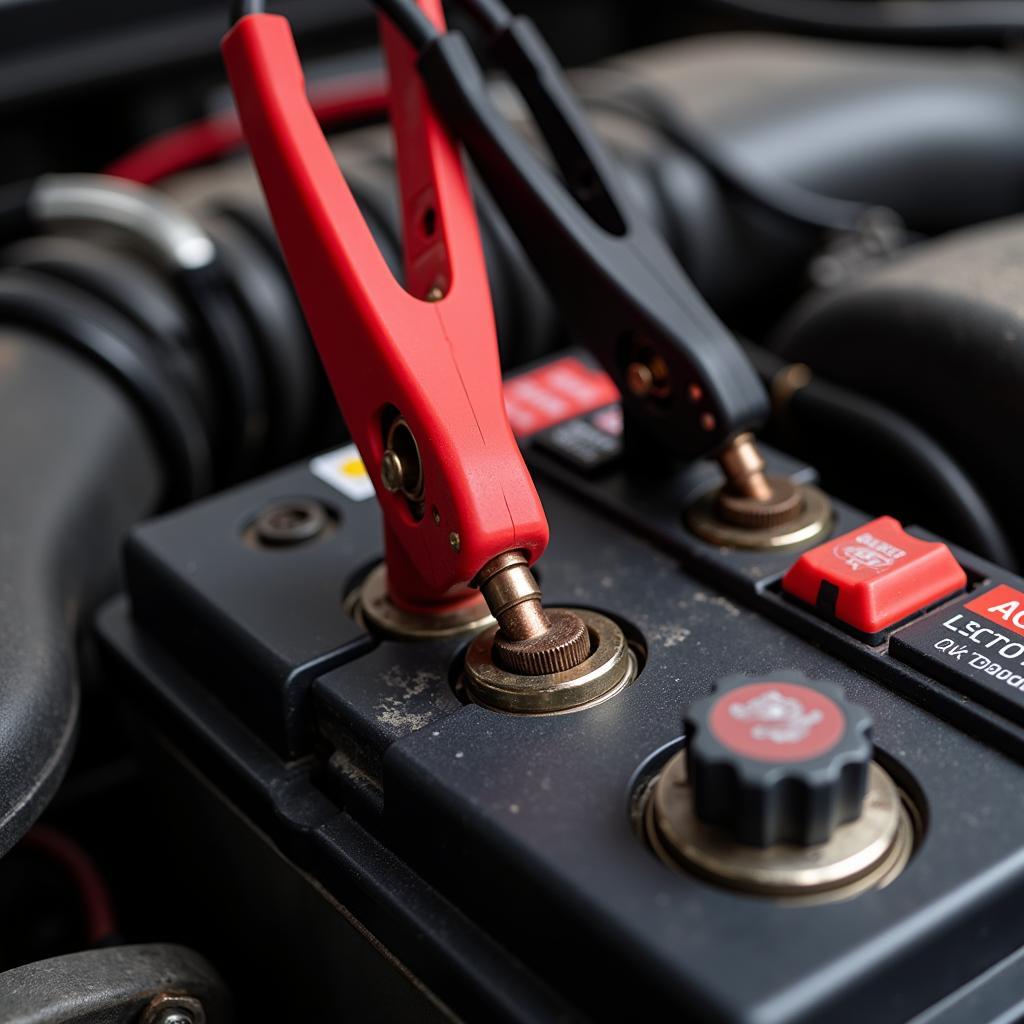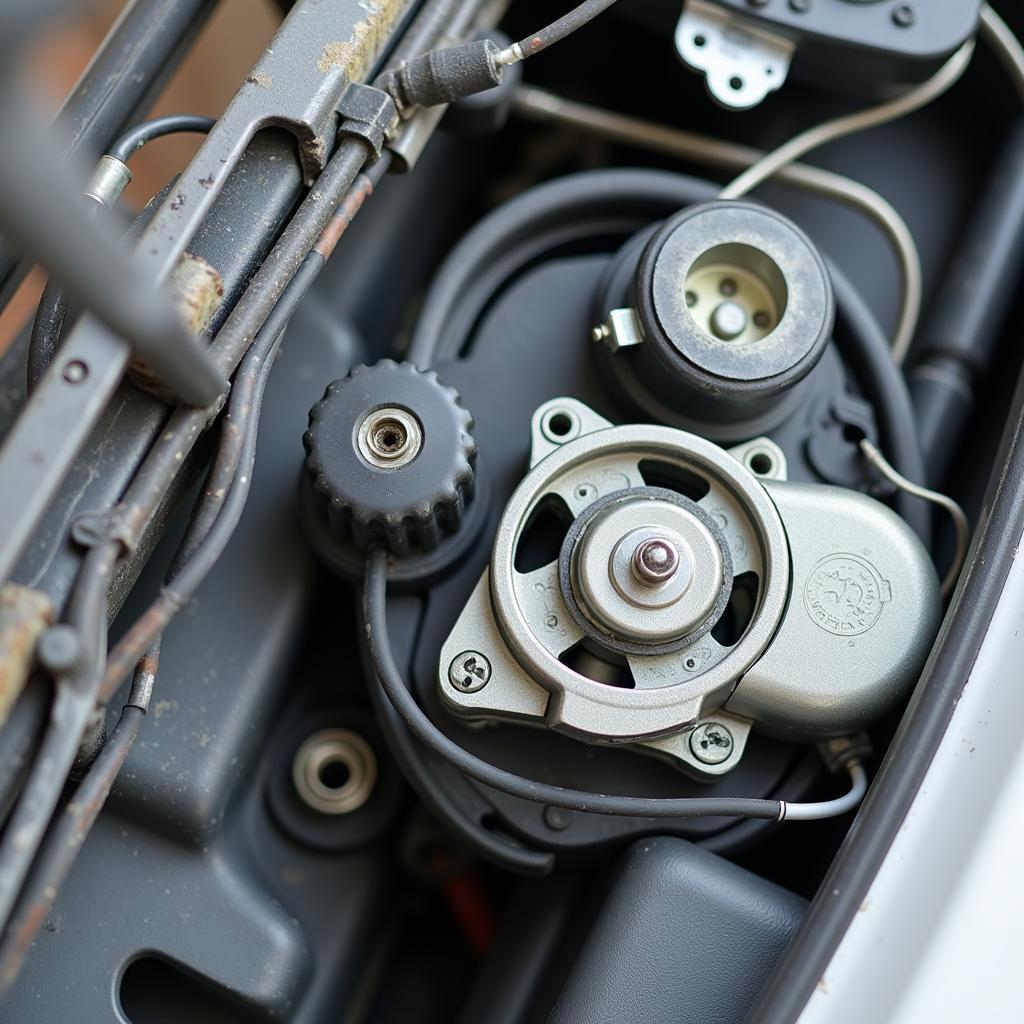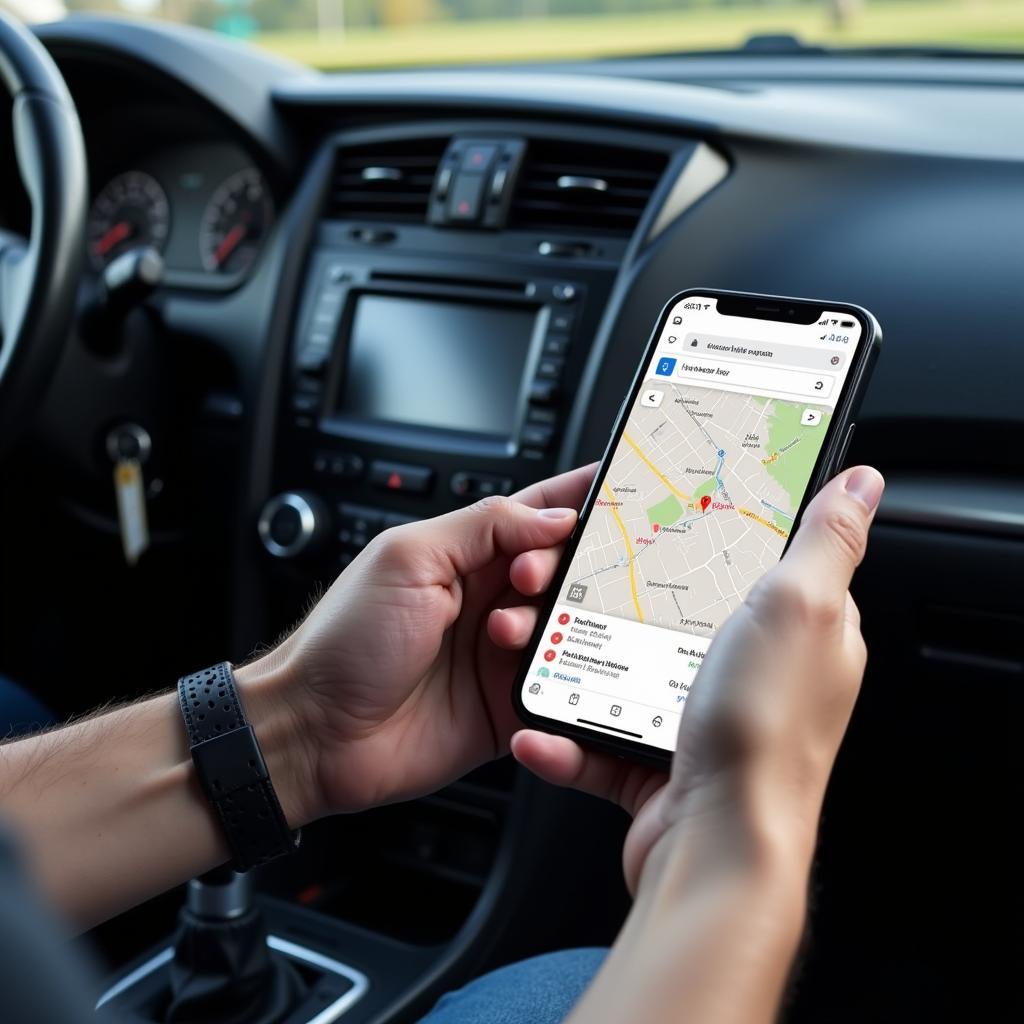Car speakers are essential for an enjoyable driving experience. Whether you’re listening to your favorite playlist, following GPS directions, or taking hands-free calls, clear and functional car speakers are crucial. However, like any other car component, speakers can malfunction, leaving you with distorted audio or no sound at all. This guide provides a comprehensive approach to Fixing Car Speakers, covering common problems and offering practical solutions. where to get car brakes fixed
Identifying the Culprit: Common Car Speaker Problems
Several factors can cause car speaker issues, from loose wiring to blown speakers. Before diving into solutions, it’s important to pinpoint the root cause. Common problems include blown speakers (characterized by a distorted, buzzing sound), damaged wiring (leading to intermittent sound or complete silence), a faulty amplifier (resulting in low volume or no sound), and issues with the head unit (affecting overall sound quality).
DIY Fixes for Common Speaker Issues
Sometimes, fixing car speakers involves simple DIY solutions. Check the speaker wiring for loose connections or damage. If a wire has come loose, reattach it securely. Damaged wiring may need to be replaced. Inspect the speaker cone for tears or holes. While minor tears can sometimes be repaired with specialized glue, significant damage usually requires speaker replacement. Ensure the speaker is properly grounded. A poor ground connection can lead to distorted audio. where can i get my car brakes fixed
Fixing Car Speakers: Wiring Issues
Wiring problems are a common cause of car speaker malfunctions. A simple visual inspection can often reveal loose or damaged wires. Use a multimeter to test the continuity of the wiring. If the multimeter shows no continuity, the wire needs replacing. When replacing wires, use high-quality automotive-grade wiring to ensure durability and optimal performance.
Advanced Troubleshooting: Amplifier and Head Unit Issues
If the problem isn’t with the speaker wiring or the speaker itself, the amplifier or head unit might be the culprit. Testing the amplifier with a known good speaker can help determine if it’s functioning correctly. Similarly, checking the head unit’s output with a known good speaker can isolate the issue. If either the amplifier or the head unit is faulty, professional repair or replacement might be necessary.
When to Call a Professional
While some car speaker problems can be resolved with DIY fixes, more complex issues often require professional assistance. If you’ve tried basic troubleshooting steps and the problem persists, it’s best to consult a qualified car audio technician. getting car brakes fixed They have the expertise and specialized tools to diagnose and fix more complicated problems, such as internal amplifier issues or head unit malfunctions.
“A common mistake people make is cranking up the volume to compensate for poor speaker performance. This can actually exacerbate the problem and damage the speakers further,” says Michael Stevens, a certified automotive electronics technician with over 20 years of experience.
Fixing Car Speakers: Choosing Replacement Speakers
If your speakers are beyond repair, choosing the right replacements is crucial. Consider factors like size, power handling, and impedance when selecting new speakers. Ensure the new speakers are compatible with your car’s audio system.
“Investing in quality speakers can significantly enhance your listening experience. Don’t just go for the cheapest option. Look for speakers with good reviews and a solid reputation,” advises Maria Rodriguez, a car audio specialist with 15 years of experience in the industry. places to get car brakes fixed near me
Conclusion
Fixing car speakers can range from simple DIY tasks to more complex repairs requiring professional help. By understanding the common causes of speaker problems and following the troubleshooting steps outlined in this guide, you can often restore your car’s audio system to its optimal performance. Remember to prioritize safety and consult a professional if needed. For expert advice and assistance with your car audio needs, contact AutoTipPro at +1 (641) 206-8880 or visit our office at 500 N St Mary’s St, San Antonio, TX 78205, United States. We’re here to help you get your car speakers back in top shape! get car brakes fixed near me
FAQ
- How do I know if my car speaker is blown? A blown speaker often produces a distorted, buzzing, or rattling sound.
- Can I fix a blown car speaker myself? Minor tears in the speaker cone can sometimes be repaired with specialized glue, but significant damage usually requires replacement.
- What causes car speakers to stop working? Common causes include blown speakers, damaged wiring, a faulty amplifier, or issues with the head unit.
- How much does it cost to replace car speakers? The cost varies depending on the type of speakers and whether you do it yourself or hire a professional.
- How do I improve my car’s sound quality? Upgrading your speakers, adding an amplifier, or installing a subwoofer can significantly improve sound quality.
- How do I prevent my car speakers from blowing? Avoid playing music at excessively high volumes and ensure your amplifier is properly matched to your speakers.
- What tools do I need to fix car speakers? Basic tools like a screwdriver, wire strippers, and a multimeter are often sufficient for simple repairs.







Leave a Reply